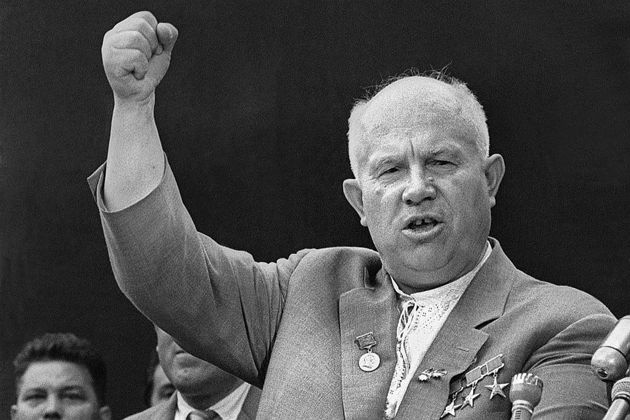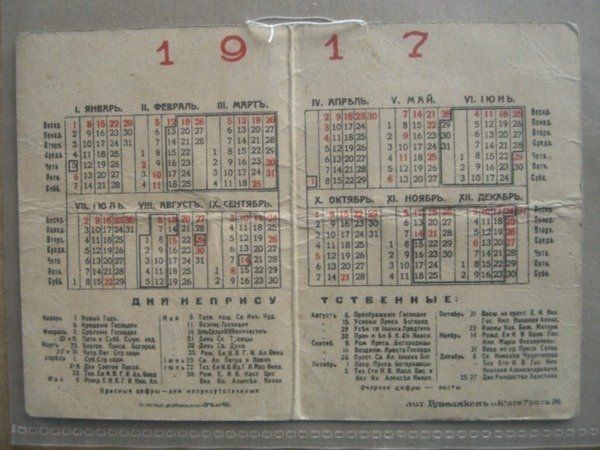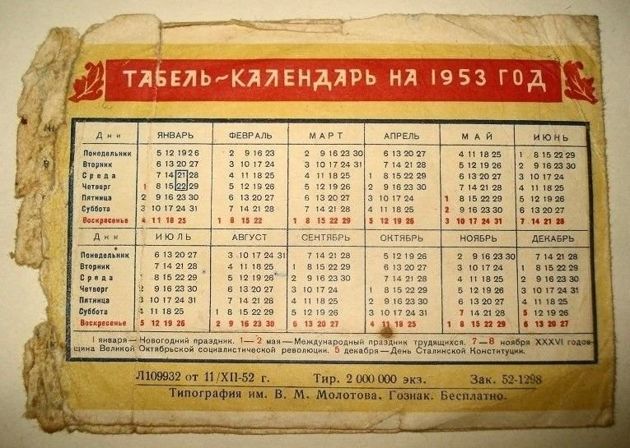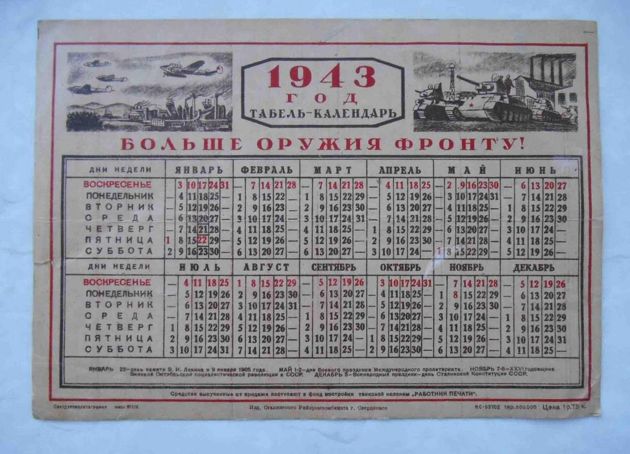Why Monday was the beginning of the week in Khrushchev’s time

Photo: open
For a long time, Sunday was considered the first day of the week. Alexander Petrovsky writes, for example, in his Orthodox Theological Encyclopedia, published in 1902. It states that Christ was resurrected on the first day of the week, which was named in honor of the miraculous event.
There seems to be some contradiction between this information and that which is written in other Christian sources. After all, God created the Earth in 6 days, and on the 7th day He rested. With this in mind, it is logical to consider Sunday as the last day of the week.

Marina Pimenova and Natalia Kravchenko in the journal “Humanitarian Vector” (2017, volume 12, issue 2) point out that not everything is right with our environment. It is the third day of the week. And he should be the fourth. If you start not on Monday, but on Sunday, then everything falls into place. Another thing is that then problems arise with Thursday and Friday. So, there are contradictions.
In the USSR, religious and pre-Christian theories were not welcomed. But for a long time, Sunday was still the first day of the week. The Bolsheviks simply had no time to deal with such not the most important issues. When there was time to put everything in order, the traditional week was completely abandoned. It was necessary to develop the economy and industry. It was necessary to work tirelessly. Therefore, the week was 6 days, with fixed days off. They fell on the numbers: 6, 12, 18, 24, 30.

Photo: twitter.com
Only on June 26, 1940, the Presidium of the Supreme Soviet of the USSR indicated that it was necessary to work 8 hours a day with a seven-day working week. The document was signed by Comrade Kalinin, the “All-Union Headman.” And the idea of the new rules most likely belonged to Joseph Vissarionovich Stalin. In those years, such an issue could hardly do without it. The decree stated that the Soviet people had to work 6 days a week, and on the last day, Sunday, they had to rest.
Does it mean that in 1940 Monday was already made the first day? What does Khrushchev have to do with it?

Photo: twitter.com
In fact, in the 1940s, calendars were printed in different ways. Someone started with a Sunday week. Some of them have been on Monday. There were no strict requirements in this regard.
Then, in the USSR, there was again no time and opportunity to deal with the “calendar issue”: the war, the Victory, the reconstruction of the country.

Photo: twitter.com
For example, in 1949, the Svetoch factory in Leningrad had a calendar where Sunday was the first day. In the Gulag camp near Novosibirsk in 1950, there was a timesheet calendar of the same “format”: Monday was the second day.
Only in 1953, when Stalin left this world, did printing organizations begin to work according to new technical rules. Therefore, the week with Monday coming first is strongly associated with the Khrushchev era.
